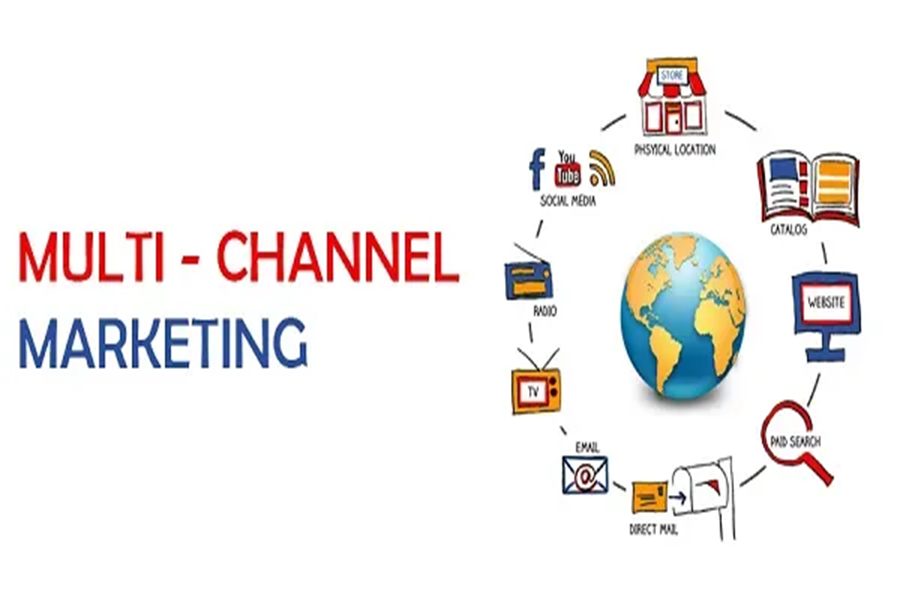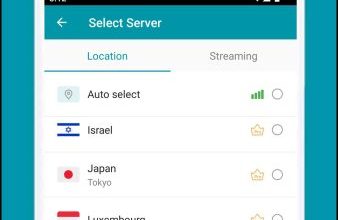The following article discusses multichannel marketing in specifics, from understanding to effective methods, and why business owners should consider implementing this.
Understanding Multichannel Marketing
Multichannel marketing, also known as marketing through different channels, is an organized planning to engaging a target audience that involves a number in platforms and strategies.
This includes utilizing offline and online channels, such as websites, social media, email, advertising, content marketing, SMS, telephone, etc. The goal is to offer a unified, comprehensive consumer engagement experience across different touchpoints.
5 Ideas for Marketing Channel Integration

Marketing channel integration refers to efforts to align and merge diverse marketing channels or channels to function as a cohesive whole. The five marketing channel integration concepts are explained below:
- Cohesiveness: Multichannel marketing necessitates close coordination between all channels. To establish a coherent experience, the message and brand must be consistent across all mediums.
- Data usage: Data is essential in multi channel marketing. Information obtained through multiple sources can be used to understand consumer behaviour better and develop more successful strategies.
- Personalization: You may personalize messages and offers for each consumer using multichannel marketing. This has the potential to enhance engagement and conversion rates.
- Brand consistency: It is critical to ensure that your brand identity is consistent across all platforms. This contributes to creating a solid image in customers’ eyes.
- Team collaboration: Collaboration among teams responsible for different channels is vital in multichannel marketing. Effective communication and information exchange can improve outcomes.
What are the six advantages of multichannel marketing?
Multichannel marketing has several key advantages for your company. Let’s have a look at the six primary advantages your company can reap from properly executing multichannel marketing:
1. Expand Reach and Engagement
You can reach a larger audience by utilizing multiple methods. Each channel has a particular audience; leveraging them properly may broaden your company’s reach. Furthermore, communicating across numerous channels may boost consumer engagement by increasing conversions.
2. Risk Management and Diversification
It is dangerous to rely on more than one marketing channel. If these channels shift or become ineffective, it can significantly impact your firm. Multichannel marketing diversifies your risks and increases your chances of success.
3. Conform to consumer preferences
Every consumer has unique tastes when it comes to connecting with brands. Some people prefer social media, while others prefer email or text. You may accommodate various consumers preferences using multichannel marketing, making them feel more connected to your organization.
4. Improve Brand Image and Awareness
Using many platforms to market your business might aid in increasing brand recognition. Customers are more likely to remember your brand if they see it in several places. This also contributes to creating a robust and favourable image in customers’ minds.
5. Capability to Boost Engagement
Increase consumer involvement by utilizing numerous media. You can communicate with them on multiple channels by providing relevant and entertaining information. This could include blog postings, social media posts, email newsletters, or tailored advertising initiatives.
6. Extensive Data Analysis
Multichannel marketing also allows for the collection of more data regarding consumer behaviour. You can better understand what works and what doesn’t by monitoring and evaluating data from multiple channels. This helps you to improve your marketing plan continuously.
Read Also: Benefits of Data-Driven Content Marketing
5 Different Types of Multichannel Marketing

The media used is the type of multichannel marketing in question. Any platform can benefit from multichannel marketing practices. The following are several types of multi channel marketing media that you should be aware of!
1. Actual Store
One media you can employ in this technique is physical stores. Customers want to shop and may require assistance entering online retailers.
2. Email
Email is a method for connecting several channels or platforms. When clients purchase on specified platforms, you can utilize email to deliver confirmations and offers.
3. Notification or Notice
Notifications or notifications from your business application may be sent if your clients still need to complete a transaction even when they desire to. Furthermore, notices or messages from this business application might convey information about product price discounts and other information.
4. Use of Social Media
Social media allows you to engage with clients and be a sales tool. Aside from that, social media is a place where many people can become your prospective buyers. You can, for example, maximize social media platforms such as Facebook advertising services and other social media platforms.
5. SMS text messages
Even though practically everyone has switched to messaging apps, SMS plays a role in product sales and marketing. To communicate with customers, use SMS services as a multichannel marketing practice media. You are beginning with sending confirmation and on to offering your product.
You Might Also Read: Increasing Reach and Influence: A Multi-channel Content Marketing Guide
3 Multichannel Marketing Functions
The practice of multichannel marketing can give numerous advantages to a company. The following are some of the benefits of employing multichannel marketing.
1. Improve Sales Management Quality and Quantity
Multichannel marketing practices benefit your sales management. This is because when a corporation prioritizes marketing across several platforms.
Each platform also has its own set of sales terms. As a result, businesses improve the quality of sales management on the platforms they utilize. The more platforms clients can use to transact with your items, the greater the company’s quantitative sales level.
2. Obtain Competitive Advantages
Multichannel marketing strategies can help your business gain a competitive advantage. This is because multichannel marketing can reveal the disparity between your and your competitors’ plans. When you have identified this gap, develop the following method that your competitors do not have.
3. Increase Your Customer Base
Developing multichannel marketing methods aids in attracting as many clients as possible to connect with your organization, also known as the engagement rate. The primary purpose of expanding the number of channels via which users may engage with the company and purchase your items is to increase customers and carry out branding.
Because each platform will not be combined in multichannel marketing practices, all existing calculations are still centred on the platform. Consider having multiple platforms, each with a significant number of customers. Overall, the number of customers you have will grow.
4 Multichannel Marketing Strategies That Work
To be successful in multichannel marketing, you must devise a practical approach. Here are four strategies to consider:
1. Determine the Best Channel for the Target Audience
First and foremost, you must identify your target audience. Then, determine the best routes to approach them. For example, if your target demographic is younger, social media platforms such as Instagram and TikTok may be more effective than traditional television advertising.
2. Content Integration and Management
One of the most critical aspects of multichannel marketing is content. Make sure your material is relevant and beneficial to your target audience. Furthermore, align your content across all media to offer a unified experience.
3. Ensure brand consistency across all channels
Maintaining brand consistency across channels is critical. The logo, colours, writing style, and brand statement are all part of this. Customers should be able to recognize your brand wherever they connect easily.
4. Monitor and assess the performance of each channel
Understanding the success of each channel requires the use of analytical techniques. Measurements allow you to discover which channels produce the most outstanding results and adjust as needed. This will enable you to make the most of your marketing spend.
Conclusion
In today’s commercial world, multi channel marketing is a vital strategy. By utilizing various channels, you may reach a larger audience, reduce risk, and boost consumer interaction. To succeed, you must develop a plan tailored to your target audience and effectively handle your channels.
*Fact: We provide accurate and updated news for readers. If you see something wrong, please contact us! Stay up-to-date with Deltsapure!





